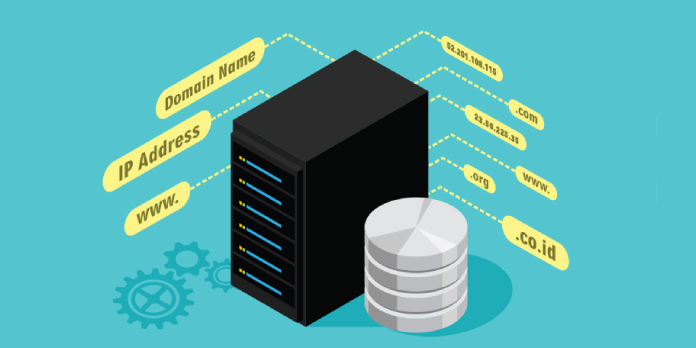Here we can see, “How to Choose The Best Alternative DNS Server”
Your internet service provider provides its DNS servers, which allow you to convert websites such as www.itechbrand.com into their corresponding IP addresses. Your devices utilise these by default, but you can change them to your chosen DNS servers for a bit more speed.
If you request it, many DNS servers will also block malware, pornography, and other types of websites. In this article, we’ll go through all of your alternatives.
Run a Benchmark if you’re looking for speed.
If you want anything faster than your ISP’s DNS servers, we recommend running a DNS benchmark to see what works best for your connection. Because the fastest DNS server will differ depending on your geographical location and internet service provider, we cannot propose a single fastest DNS provider for everyone.
Many DNS providers place a premium on speed, and it’s their main selling feature. However, only a benchmark can tell you which is the fastest for you.
If you’re seeking the quickest DNS server on Windows or Linux, we recommend using Gibson Research Corporation’s free DNS Benchmark application. (Mac users might have used Namebench in the past, but the project has been abandoned, and we’ve heard it doesn’t operate properly on the most recent versions of macOS.)
- Download DNS Benchmark, run it (no installation required), navigate to the “Nameservers” tab, and press the “Run Benchmark” button. It will test the top 72 DNS servers. After that, it will offer to assess almost 5000 publicly available DNS servers worldwide and find the top 50 for your connection. Of course, this will take longer.
- Make sure the DNS Benchmark tool is the only item using your internet connection during the tests for the most accurate results (so turn off Netflix streaming, online games, or other downloads that might be using your internet).
- For example, in the benchmark we did on a single connection, we discovered that the fastest third-party DNS servers were OpenDNS, UltraDNS, and Google Public DNS.
- There is one problem with this tool. Because they are physically close to you, your Internet service provider’s DNS servers will likely be the fastest for your connection. DNS Benchmark, on the other hand, does not test your ISP’s DNS servers.
- For example, the screenshot above indicates that our router—the “Local Network Namesaver”—is the fastest DNS server. This is because it is physically present on our local network and may immediately return cached results that it remembers. However, because your router will use your ISP’s DNS servers by default, this test did not truly compare your ISP’s DNS servers against these third-party DNS servers.
- To test this, log into your router’s web interface and look up the addresses of your ISP’s DNS servers. Of course, every router is a little different, but we found this under “Internet status.”
- Then, in DNS Benchmark, go to the Nameservers tab and select the “Add/Remove” option. For example, to add the first DNS server to the list, enter its IP address and click “Add.” Then, insert the address of the second DNS server and click “Add.”
- After that, click “Conduct Benchmark” to run the test with your ISP’s DNS servers. Again, it’s hardly a surprise that Comcast’s servers were the fastest for our Comcast connection.
Even though your ISP’s servers are the fastest, you may want to use a DNS server that offers malware filtering, parental controls, and other services. Therefore, it’s useful to know how fast the other solutions are in comparison.
If You’re Looking for a Fast DNS Server
Some DNS servers don’t have many functions and instead focus on offering quick, accurate results.
- Google developed Google Public DNS to provide a quick and secure alternative DNS server. It delivers unprocessed, raw results. In addition, Google guarantees that no usage data will be linked to any personal information you’ve contributed to other Google services.
- OpenDNS Home can be customised. So, while OpenDNS provides virus protection and other online filtering tools, you may register a free account and configure the exact filtering that occurs for your connection. In addition, you can use OpenDNS with or without filtering if it is fast for you.
- OpenDNS guarantees that your information will not be shared with any third parties.
- There’s also Level 3 DNS, which is managed by Level 3 and provides backbone connections that connect ISPs worldwide. Several ISPs use level 3 DNS. Level 3 does not publicly advertise its DNS service, although anyone can utilise it by pointing their systems to Level 3’s DNS servers. For some connections, Level 3’s DNS service may be quite quick.
- Verisign also offers a public DNS server. It also does not block anything and claims not to sell your DNS information to third parties.
You can get them through NeuStar’s DNS if you require raw results, formerly known as UltraDNS. However, if your Internet connection is fast—and it was one of the fastest on ours—it may be a solid bet in any case. However, NeuStar makes no explicit commitment not to sell your third-party data, and its DNS terms of service only refer to its site privacy policy.
If You Need Parental Controls or Malware Protection
- If you want a DNS server with flexible parental restrictions, we recommend OpenDNS Home.
- You may sign up for a free account and customise how it operates on your connection, including virus protection and parental controls with more granular options than other providers. You can specify which categories to restrict and even create a custom list of web domains to prohibit or allow. As previously stated, OpenDNS commits not to share your information with third parties. For additional information, see our OpenDNS configuration guide.
- Neustar DNS, formerly known as UltraDNS, also provides a variety of DNS servers that can be used to block various sorts of malware or inappropriate websites. Again, this could be a decent choice if the UltraDNS/NeuStar servers are fast for you.
- However, they do not explicitly pledge not to sell your usage data, as do the other providers we recommend.
- If you only need malware protection, you should look into Norton ConnectSafe. Symantec, which also produces Norton Antivirus, manages these servers. Depending on the server you select, they will block harmful websites and other forms of undesirable websites. According to Symantec’s privacy notice, the service utilises the data only to provide you with DNS service and to measure aggregated service usage, and it does not sell your data.
- We recommend doing a DNS benchmark to check what works best for your connection if you want anything faster than your ISP’s DNS servers. Unfortunately, we cannot recommend a single fastest DNS provider for everyone because the fastest DNS server will vary depending on your geographical location and internet service provider.
Many DNS providers place a high value on speed, and it is their primary selling point. Only a benchmark, though, can tell you which is the fastest for you.
Conclusion
I hope you find this advice to be helpful. Please use the form below if you have any queries or comments.
User Questions:
- What is the preferred DNS Alternate DNS server?
The preferred DNS is a predefined primary option for handling Internet protocol mapping. If the preferred option times out after a time restriction set by the operating system, the system will attempt to use the other DNS. Servers can face the same connectivity issues that a home user can.
- What should I type in the desired DNS field?
- Cisco OpenDNS: 208.67. 222.222 and 208.67. 220.220;
- Cloudflare 1.1. 1.1: 1.1. 1.1 and 1.0. 0.1;
- Google Public DNS: 8.8. 8.8 and 8.8. 4.4; and.
- Quad9: 9.9. 9.9 and 149.112. 112.112.
- How many DNS servers should I have?
For any Internet domain, you’ll need at least two DNS servers. You can have more than two for a domain, but three is usually sufficient unless you have many server farms and split the DNS lookup load among them. At least one of your DNS servers should be located in a different location.
- TIL You may significantly boost your home internet speeds by switching to Google’s DNS.
TIL You can switch to Google’s DNS and greatly increase home internet speeds from technology
- Which DNS server is the fastest in our country? Would you mind helping me choose a DNS server?
Which DNS server is the fastest in our country? Please help me choose a DNS server. from IndianGaming



